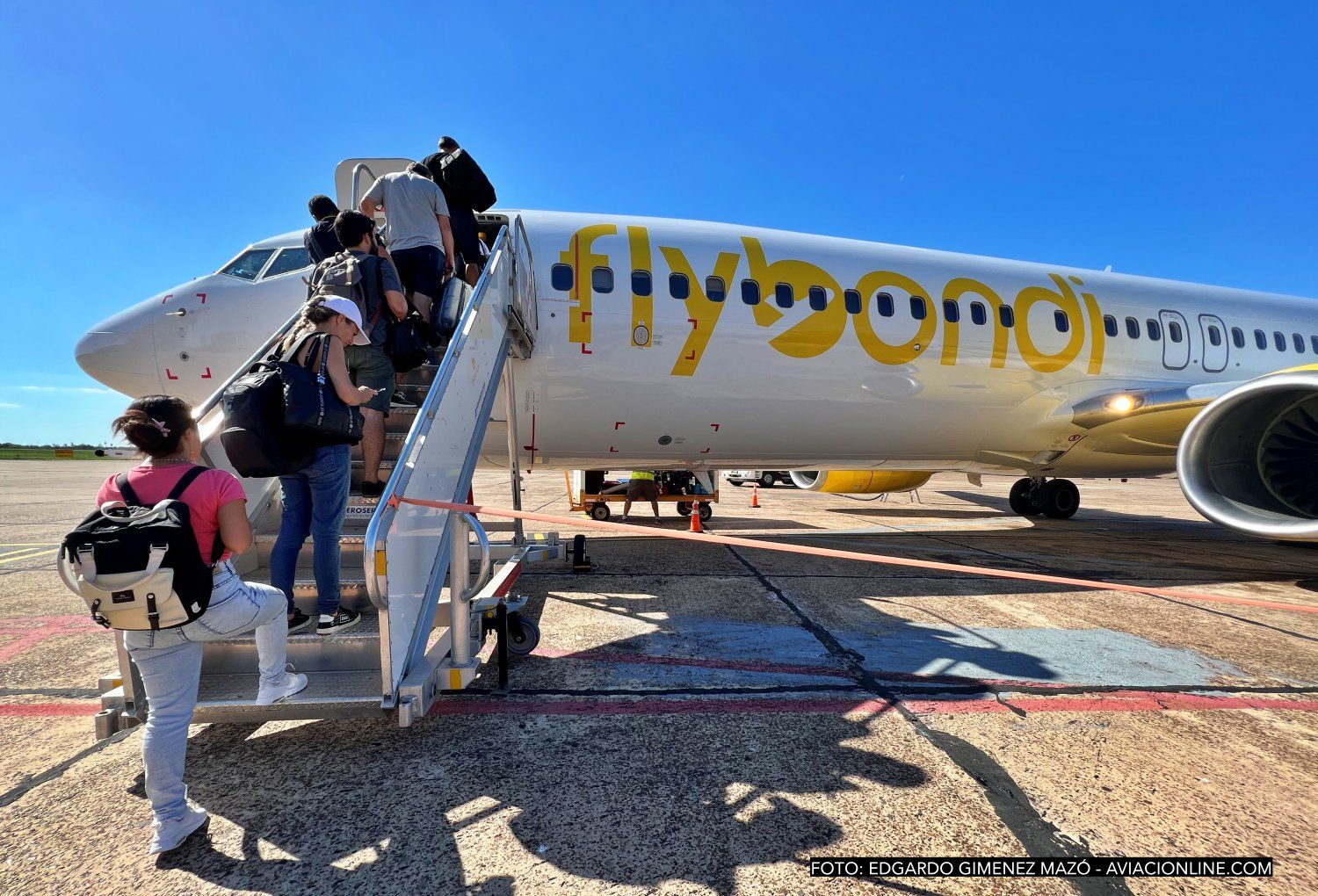The Argentine economy adds an extra layer of complexity to commercial and service operations that depend on access to the foreign currency exchange market: this is not news.
Through the SIRASE (Import System of the Argentine Republic and Payments for Services Abroad), the Federal Administration of Public Revenues (AFIP) analyzes the fiscal compliance and the economic and financial capacity of those individuals -physical and legal entities- that make payments abroad for contracted services.
The claims made by service importers and industries affected by SIRASE due to delays or discretion in the resolution of applications are increasing week by week, and in aviation, so closely linked to services provided by foreign companies, the situation is far from ideal.
In this context, Aviacionline has learned that Flybondi is one of the companies affected by delays in the approval of the SIRASE declarations it submitted in recent months, a situation that jeopardizes the company’s operations.
According to sources close to one of the companies that leased aircraft for the low-cost carrier to operate, the accumulation of pending lease payments could cause two of its aircraft to be prevented from operating within a «peremptory» period.
It was also detected that the company has been making a whole series of reschedules and cancellations for June, which seems to be a preventive move to mitigate the potential impact. Apparently, the same fate would have met the launch of a new route to Brazil, which would have been opened for sale at the end of May.
Within the framework of the fleet growth plan announced at the end of 2022, the low-cost airline had planned the arrival of two new planes in June. It remains to be seen how this schedule continues if it is confirmed that it cannot pay the lease for the current aircraft.
Aviacionline contacted the company but Flybondi did not want to comment on the matter, however, sector sources confirmed the situation, describing it as «critical» and that it had already been raised with urgency to the ministries of Economy and Transport.
General problem, particular situation
The situation affects different players to varying degrees, as Flybondi does not have an operational structure that has key services – simulators, maintenance, and spare parts – concentrated in a foreign subsidiary of the same group.
Therefore, the provision of these essential services for operation necessarily involves the contracting of third parties, and while there are some local companies with some capacity to replace these services, there is no aircraft leasing company that signs contracts in Argentine Pesos. Software companies that charge their licenses for the use of proprietary systems abroad are in a similar situation.
Lessors facing a delay in payments from a customer have a range of actions to penalize delays. The most direct action is to suspend the operating permission of the aircraft affected in the contract, which means grounding the units until the situation is regularized.
Air Cargo, seriously affected
From JURCA, the Chamber of Airlines in Argentina, they had already expressed their concern about the «inability to import necessary supplies for the daily operation of the airlines,» and add that operators carrying cargo are affected by the 90-day parking defined by the BCRA for payment for services abroad.
The Chamber emphasizes that cargo operations will require SIRASE, which causes concern among freighters because, unlike maritime transport which usually has delivery times of between 30 and 60 days, the measure requires a suspension of payment for services rendered that can approach four months, considering that cargo transportation is paid between 15 and 30 days before the actual shipment.
After a meeting of IATA and JURCA with the Undersecretariat of Commerce, there is anticipation for an amendment to the regulations, as from the public body they were understanding of the situation and understand that it could seriously affect supply, with the consequent increase in costs and loss of competitiveness.
However, the Undersecretariat is the executive body of the directive received from the Central Bank, so the path to reverse the measure is long and does not depend exclusively on the understanding of the office.


Comentarios
Para comentar, debés estar registrado
Por favor, iniciá sesión